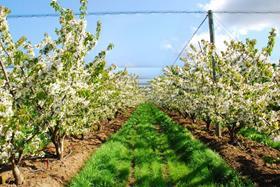
Australia’s Federal Government has highlighted the potential for export development following the announcement of an enhancement to the Tasmanian Freight Equalisation Scheme (TFES), however, producers from the island state are continuing their push for additional funding.
From 1 January 2016, the TFES will be extended to all goods going to markets not currently covered by the scheme. It means Tasmanian companies will be able to claim a A$700 (US$534) rebate on every shipping container of fresh produce sent from the state’s shores.
Senator Richard Colbeck, parliamentary secretary to the Australian Minister for Agriculture, said the timing of the announcement was ideal for the state’s exporters, following the announcement of free trade agreements with key trading partners, including Japan, South Korea and China.
“Our announcement of the latest enhancement to the TFES scheme now opens Tasmania to the world,” explained Colbeck. “These advancements mean Tasmania is better placed than ever before to play its part in high value global markets.”
Despite Colbeck’s assurances, Tasmanian producers are continuing their campaign for the Federal Government to deliver on its pre-election Economic Growth Plan for Tasmania.
As part of the growth plan, the Liberal Government promised to establish a taskforce aimed at improving the state’s fresh produce sector. While the taskforce has met three times and delivered its proposals to Federal Minister for Agriculture Barnaby Joyce, nothing has materialised in terms of investment.
Taskforce member David Addison told the ABC that export development was the number one priority outlined in the recommendations. “It would be very disappointing if we were just another recommendation that sat on the shelf and never came to anything,' Addison said.
As part of the recommendations, the taskforce suggested the creation of a new export development position within one of the state’s existing horticultural bodies. The creation of the role would cost around A$4m (US$3m) over five years.
“It has to be put to the test,' taskforce member Anthony Houstontold the ABC. 'We wouldn't get the A$4m up front but we do need some seed money to get in there and make a start.”



